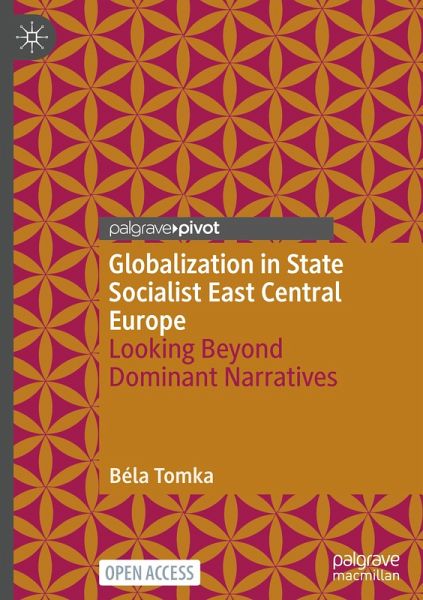
Globalization in State Socialist East Central Europe
Looking Beyond Dominant Narratives
Versandkostenfrei!
Versandfertig in 6-10 Tagen
31,99 €
inkl. MwSt.

PAYBACK Punkte
16 °P sammeln!
This open access Palgrave Pivot explores four major aspects of globalization: foreign trade, capital and information flows, and the movement of people. The book examines how the state socialist countries of East Central Europe fit into the general trend of globalization after WWII. It focuses on three specific countries in the region: Poland, Czechoslovakia, and Hungary. The study also considers conceptual problems: whether recently introduced terms such as 'alternative globalization' and 'socialist proto-globalization' are plausible for interpreting state socialist globalization.Special atten...
This open access Palgrave Pivot explores four major aspects of globalization: foreign trade, capital and information flows, and the movement of people. The book examines how the state socialist countries of East Central Europe fit into the general trend of globalization after WWII. It focuses on three specific countries in the region: Poland, Czechoslovakia, and Hungary. The study also considers conceptual problems: whether recently introduced terms such as 'alternative globalization' and 'socialist proto-globalization' are plausible for interpreting state socialist globalization.
Special attention is paid to the study of continuities and discontinuities in the process of globalization in East Central Europe, which is a key issue in current debates. This requires a long-term perspective, so the study covers not only the decades before 1989 but also subsequent developments. In doing so, the book attempts to find a balance between old and new mainstream interpretations:it recognises that East Central European societies experienced considerable globalization during the state socialist era; however, based on empirical findings, instead of 'alternative' or 'proto-' globalization, the book suggests other notions to conceptualise this process, including fragmentation, selectivity, and unevenness. Thus, the proposed understanding could also contribute to discussions on globalization beyond East Central Europe.
Special attention is paid to the study of continuities and discontinuities in the process of globalization in East Central Europe, which is a key issue in current debates. This requires a long-term perspective, so the study covers not only the decades before 1989 but also subsequent developments. In doing so, the book attempts to find a balance between old and new mainstream interpretations:it recognises that East Central European societies experienced considerable globalization during the state socialist era; however, based on empirical findings, instead of 'alternative' or 'proto-' globalization, the book suggests other notions to conceptualise this process, including fragmentation, selectivity, and unevenness. Thus, the proposed understanding could also contribute to discussions on globalization beyond East Central Europe.












